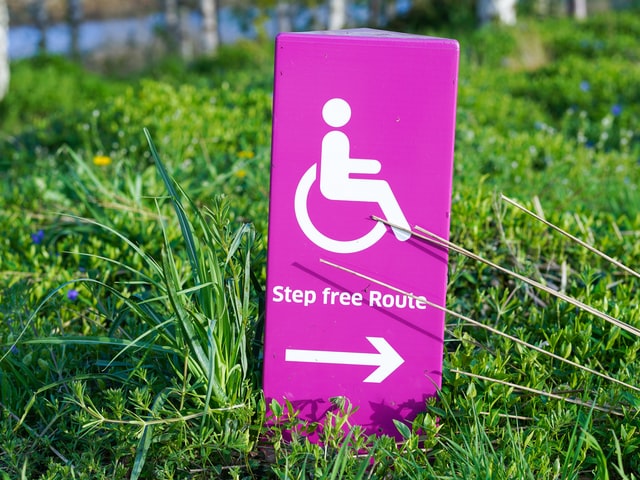Premier Inn Apologises to Paralympic Swimmer After Lift Outage
Paralympian Ellie Challis and her father were unable to access their Premier Inn hotel room due to a broken lift. As reported by the BBC, Ellie Challis, a Paralympic...
Read Full Article
July marks Disability Pride Month, an international event that shines a light on physical, learning, hidden disabilities and mental health conditions, enabling open conversations.
Originating in the USA, Disability Pride's first event was held in Boston after The Americans with Disabilities Act (ADA) was signed in 1990, prohibiting discrimination against people with disabilities. New York Mayor Bill de Blasio later declared July Disability Pride Month in celebration of the ADA’s 25th anniversary in 2015.
In honour of Disability Pride Month, we are examining the concept of "disability confidence" as a best practice way for organisations to deliver consistent and respectful adaptations for people with disabilities.
"If the mere word ‘disability’ makes you uncomfortable, how can you and your organisation function? How will you effectively access diverse talent, increase the productivity of an entire workforce, design usable and efficient products and services and enhance the experience of every customer?"
–Susan Scott-Parker OBE
Founder and CEO, Business Disability International
Coined by Susan Scott-Parker OBE, Founder of Business Disability International and internationally recognised thought leader on business inclusion for people with disabilities, disability confidence is a term that aspires to change the way people talk about disabilities.
The word disability can often carry negative connotations and unnecessary assumptions, disability confidence is about being able and willing to effectively manage a spectrum of human needs.
Scott-Parker poses an important question: "If the mere word ‘disability’ makes you uncomfortable, how can you and your organisation function? How will you effectively access diverse talent, increase the productivity of an entire workforce, design usable and efficient products and services and enhance the experience of every customer?"
A truly disability confident business appreciates how its own corporate disability performance affects every aspect of its business. It does not make assumptions about an employee's potential based on labels and makes adjustments to enable all people to thrive within it.
Along with other ESG considerations, disability is seen as a priority for businesses, and consumer expectations reflect this. Business Disability International highlights the following UK statistics to highlight the impact of disability on consumer access to goods and services:
When organisations get disability confidence right, it can bring enormous business and personal benefit. By anticipating the changing landscape of customer expectations, legal and operational risks are minimised and brand reputation is bolstered. Here are just some of the opportunities available to disability confident businesses:
To get started on making practical changes in your business, visit: https://www.businessdisabilityinternational.org/
Picture: a photograph of some grass, on top of which a sign rests which states "Step Free Route" and an arrow pointing the right. The sign is a vibrant pink colour and displays a graphic of a wheelchair-user
Article written by Ella Tansley | Published 20 July 2022
Paralympian Ellie Challis and her father were unable to access their Premier Inn hotel room due to a broken lift. As reported by the BBC, Ellie Challis, a Paralympic...
Read Full ArticleOn The UN International Day of People with Disabilities, how can FMs use their influence to promote the rights and wellbeing of persons with disabilities? More than...
Read Full ArticleSodexo has had its leader status in the UK Government's Disability Confident scheme re-accredited for a further three years. The Disability Confident scheme...
Read Full ArticleBoris Johnson has launched a new National Disability Strategy, including plans to consult on disability workforce reporting for businesses with more than 250...
Read Full ArticleHow is the erosion of the traditional high street impacting access and inclusion in our cities? Whilst much is being written about how socially distanced,...
Read Full ArticleA new building design standard has been created to ensure that the built environment is accessible to both people with physical disabilities and neurodivergent people...
Read Full ArticleEMCOR UK has achieved “employer” status through the government’s Disability Confident scheme. The scheme has three defined levels, and Disability...
Read Full ArticleThe ISS Hub, a new global headquarter hub for the facility service provider ISS in Warsaw, has just been evaluated by accessibility assessment organisation Mobility...
Read Full ArticleTransport for London is encouraging people to give up their seats to people who may need them to mark Priority Seating Week. Transport for London (TfL)...
Read Full ArticleThe business case for a more accessible travel experience is clear – but how can built environment professionals make public spaces such as airports less stressful...
Read Full Article